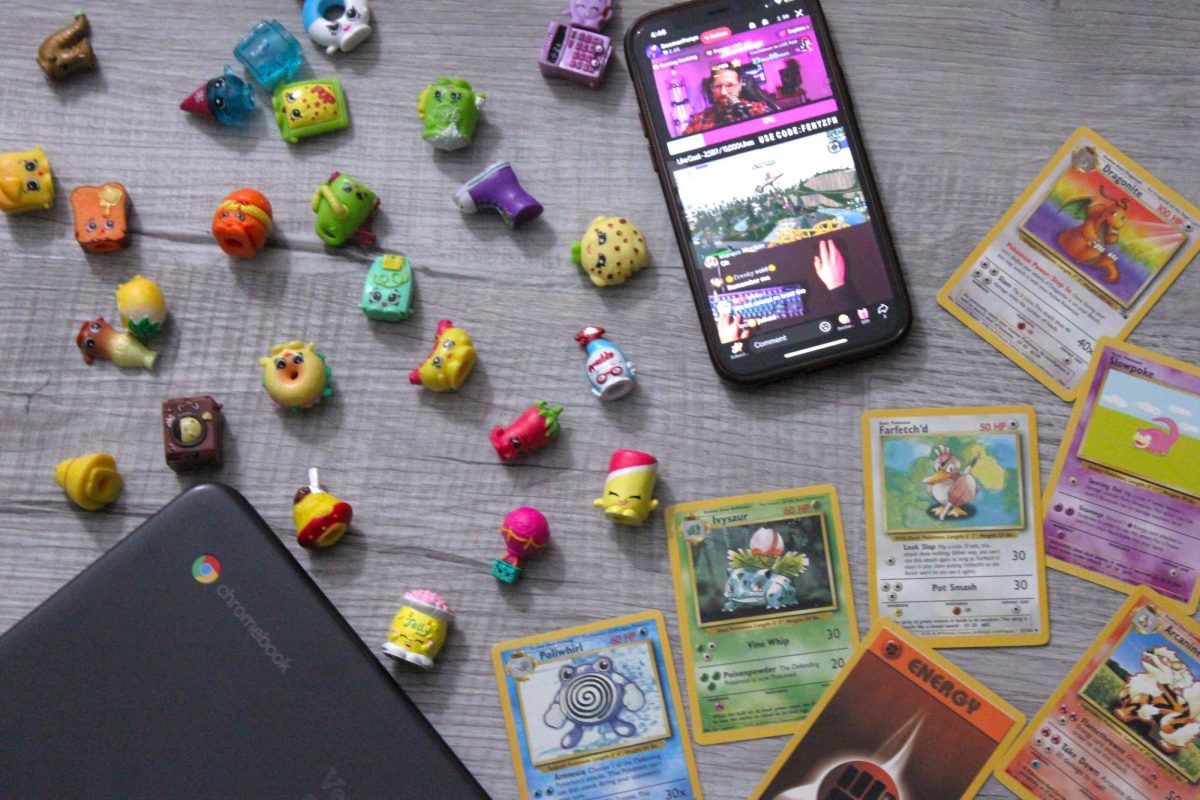AI platforms, such as ChatGPT and Mathway have become increasingly common to see used, especially in school settings. Generation Z (Gen Z), those born between 1997 to 2012, use AI technology occasionally, but possess the critical thinking to distinguish when to draw the line on technology use. Future generations, like Generation Alpha (Gen Alpha), 2010 to 2025, grow up in a vastly different world from Gen Z, using iPads and iPhones as early as toddlers or having their own social media accounts to post dances or skincare routines. The AI crisis is not attacking current high school students; however, it’s headed for the next generations.
Early 2000s children grew up with a variety of ways to entertain themselves; both technologically and with their imaginations. Devices such as a LeapPad, Amazon Kindles and game consoles like the Nintendo DS were popular choices for many kids and used sparingly in between other activities. More time was spent outside playing on scooters and Heelys or messing around with toys like Littlest Pet Shop, Shopkins and Beyblades. Social media and technology weren’t a core factor in Gen Z childhoods; the extent of “social media” was the occasional Animal Jam or Club Penguin login on the family computer.
However, Gen Alpha experiences childhood very differently. Children growing up in the age of constant “media multitasking” develop social and cognitive issues that stunt the ability to balance different technologies throughout their lives. Games and devices aren’t as education-focused, and entertainment is a fast-paced overstimulating explosion that leads to reduced attention spans. According to the Pew Research Center “Parenting Children in the Age of Screens” survey, 81 percent of children ages five through eight have interacted with a tablet computer and 59 percent of children five through eight have interacted with a smartphone. In the same survey, the research center also found that “more than one-third of parents with a child under 12 say their child began interacting with a smartphone under the age of five.” In addition, Gen Alpha students are more likely to be hyperactive and experience negative psychological effects from excessive screen time; such as attention deficit disorder, anxiety and depression.

Television, the most used technology medium for children of many generations, has changed dramatically since the 2000s. The pattern of education or lesson-based programs affected Gen Z television, with popular children’s shows such as Wild Kratts, Backyardigans and Octonauts. Cable dominated the majority of television screens, which led to inevitable commercial breaks. Infomercials, often for children’s’ toys, like the Wubble Bubble Ball, Nerf blasters and Monster High Dolls, were widely known broadcasted products. However, cable television has become dwarfed by streaming services and on-demand television. Commercial breaks are replaced with online advertising on social media, and toy infomercials are nearly extinct for Gen Alpha children, making creativity and imagination secondary to technology.
Chromebooks, a common device issued to students by school districts around the United States since the COVID-19 pandemic, are used by educators for convenience and accessibility for students. For Gen Z, Chromebooks came into effect in the middle of their education; the early high school or middle school years. In the elementary schools of the 2010s, children accessed computers typically in a computer lab, taking state tests or playing educational games such as Starfall or Typing Training. Now, Chromebooks are being issued to students even in kindergarten, introducing them to screens at an impressionable age in a post-COVID society where in-person social skills have already weakened.
Between the generations, the motivations behind using AI reveal their different relationships with technology. Gen Z prefers convenience: nearly three-quarters of the younger generations say using AI tools in their personal life reduces mental load, allowing more time to invest in other things. Furthermore, 36 percent of Gen Z in a study reported feeling guilty after using AI in their work, or believe that it hinders their creativity. Gen Alpha focuses on progress: over three-quarters of children eight to 14 aspire to be independent in business, and 59 percent believe AI will be central to their future jobs.
Teachers and students alike worry about the implications of AI technology in school, but current high school students remain grounded with wariness about new technology. Oftentimes, AI usage is currently pursued because of laziness, lack of time or procrastination. The generations growing up immersed in technology rather than toys, games and physical childhood experiences won’t interact with AI in the same way which will be dangerous for the future of education.















